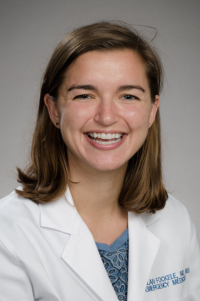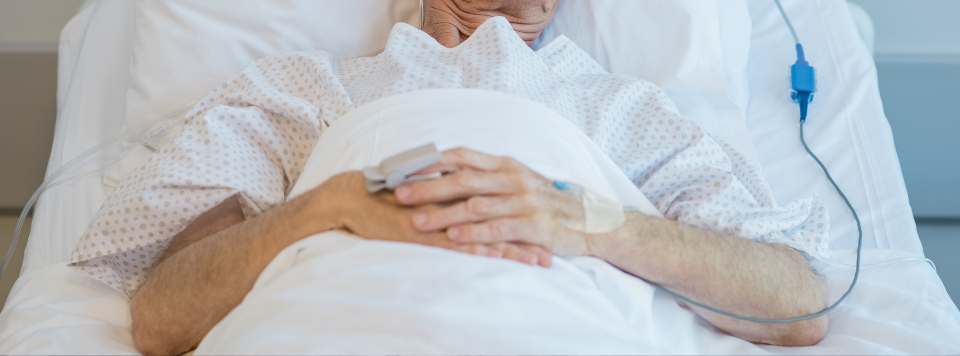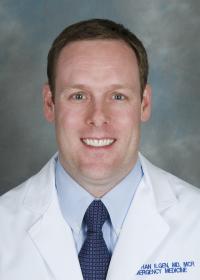
Co-Investigator Dr. Fockele Awarded Grant Funding for Research Surrounding Mental Health, Substance Use

The Department of Emergency Medicine’s Dr. Callan Fockele will serve as a co-investigator on two research studies thanks to recent grant funding. Dr. Fockele has advanced training in addiction medicine and her research focuses on improving outcomes for those who use drugs.
The first is a National Institute on Drug Use (NIDA) R01 grant being led by Principal Investigator Jenna van Draanen, PhD, MPH of the UW School of Public Health and School of Nursing. The team received $715,560 to evaluate in further detail the effects of the Emergency Medical System (EMS) Overdose Prevention Project (EMS-OPP).
Overdoses in King County, WA continue to rise according to data from the King County Medical Examiner's Office. So far in 2023 there have been 1,170 overdose deaths. This is up from 1,001 deaths in 2022 and up drastically from 508 deaths in 2020. EMS providers are the first on scene in these instances and are critical partners in caring for those who use drugs. The research team partnered with EMS leadership, those who use drugs, and community partners to collect data and then co-design EMS-delivered interventions targeted at reducing the stigma around people who use drugs and increase their access to care.
These interventions are being rolled out as the EMS-OPP which provides training for all EMS providers on stigma reduction and trauma-informed care, an EMS naloxone leave-behind program, and warm hand-off to a follow-up team for connecting to care. King County EMS teams will adopt these programs iteratively and plan to have 90% of teams participating by 2026.
The team will utilize the natural experimental conditions using a concurrent triangulation mixed methods design to examine the impact of EMS-OPP on racial disparities in health outcomes. Specifically, guided by Public Health Critical Race Praxis, they will partner with people who use drugs and Public Health Seattle & King County to evaluate the effects of EMS-OPP on racial disparities in patient-level experiences, further evaluate EMS-OPP from the perspective of Black, Hispanic/Latinx, and American Indian/Alaska Native non-fatal overdose survivors, and examine the impact of the EMS-OPP on racial disparities in population-level outcomes.
Dr. Fockele will also serve as a co-investigator on a research study funded by the UW Medicine Garvey Institute for Brain Health Solutions that will look at implementing contingency management in a supportive housing context to promote resident well-being.
Dr. Bryan Hartzler of the UW Department of Psychiatry and Behavioral Sciences is serving as the Principal Investigator, along with co-investigators Alanna Feltner of the Addictions, Drug, and Alcohol Institue, and Dr. Sarah Leyde, with the UW Division of General Internal Medicine.
A therapy that has proven useful among those with mental health and substance use disorders is contingency management (CM). This is where a person earns tangible rewards for demonstrating desired behaviors like going to support group, taking prescribed medication, or completing workplace re-entry paperwork.
Dr. Hartzler and his team at the UW Center for Advancing Addiction Health Services (CAAHS) have provided comprehensive technical assistance to regional treatment settings to facilitate design and successful implementation of sustainable CM programming. Meanwhile, Drs. Fockele and Leyde have built working relationships with Downtown Emergency Services Center (DESC) while exploring interest in CM among its staff and residents.
This convergence of acute community need, an experienced team offering technical assistance, and an established academic-community partnership highlights an opportunity in which CM will be implemented in DESC-governed supportive housing facilities to increase resident utilization of beneficial services.
Separate from the two grants, Dr. Fockele was recently appointed as the American College of Emergency Physicians (ACEP) representative for the Provider’s Clinical Support System-Medications for Alcohol Use Disorder (PCSS-MAUD) Steering Committee. The purpose of this committee is to provide training, guidance, and mentorship on the use of Medications for Alcohol Use Disorders (MAUD).
Congratulations, Dr. Fockele on all your achievements!








